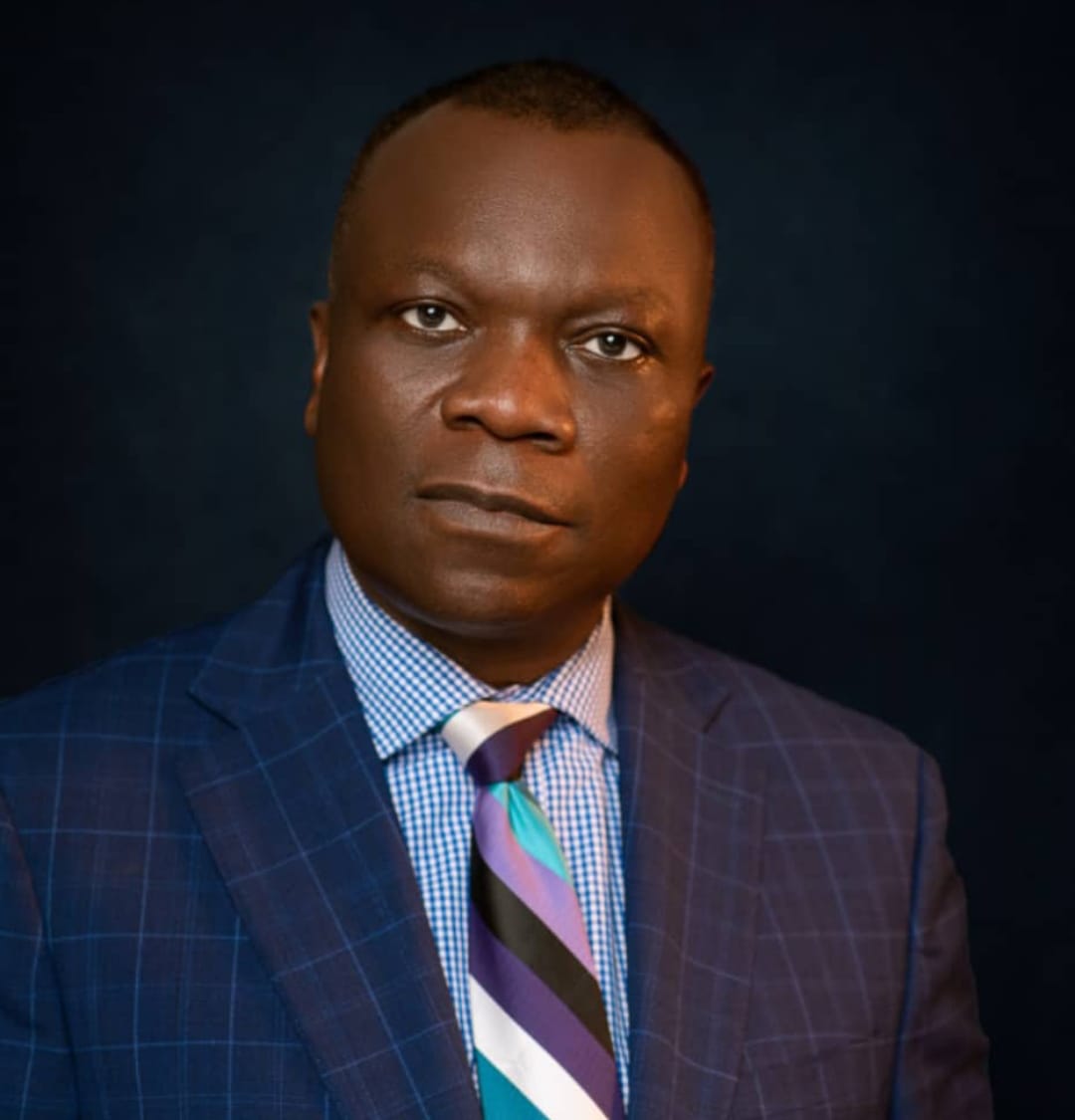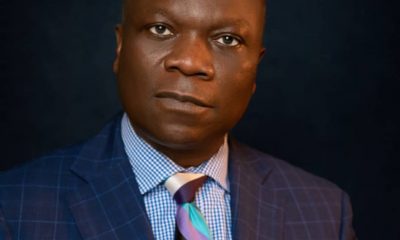society
From Emilokan to Emergency: The Tragedy of Tinubu’s Unprepared Presidency”

“From Emilokan to Emergency: The Tragedy of Tinubu’s Unprepared Presidency”
By George O. Sylvester
When Bola Ahmed Tinubu thundered “Emilokan”; Yoruba for “It’s my turn”, during his now-infamous declaration of presidential ambition, it resonated not as a call to serve, but as a personal entitlement. The former Lagos governor, long regarded as a political tactician lurking in the shadows of power since the early 1990s, assumed the presidency in 2023 with the self-proclaimed aura of inevitability. But barely a year into his tenure, it has become glaringly evident: Bola Ahmed Tinubu was profoundly unprepared for the very office he schemed, plotted, and politicked for over three decades to attain.
This is no longer just political opinion, it is the lived reality of over 200 million Nigerians now burdened by escalating poverty, insecurity, and economic hopelessness. The man who once strutted the corridors of Bourdillon like a kingmaker has proven to be a disaster in office, leading with a detachment so severe it borders on abdication.
A President Abroad: Governance by Absence
Since assuming office, President Tinubu has spent an estimated 70% of his leadership days in Europe or elsewhere outside Nigeria. From medical trips cloaked as “private visits” to diplomatic shuttles that yield no visible results, his preference for foreign soil has turned Nigeria’s highest office into a revolving door of absenteeism.
Economic analyst Dr. Ayo Teriba did not mince words when he recently remarked, “We are in a leadership vacuum. The ship is rudderless while the captain watches from a distant shore.”
This chronic absence undermines not only the operational machinery of governance but the symbolism of leadership. In a nation grappling with multidimensional poverty, a spiraling exchange rate, and unprecedented inflation, the least citizens deserve is a president who is physically and mentally present.
Policy Catastrophe: A Clueless Economic Agenda
Tinubu’s first act as president was the abrupt removal of fuel subsidy, an economically necessary but grossly mishandled decision. Implemented without a cushion or plan, it triggered a tsunami of inflation that devastated the already impoverished populace. Transportation costs doubled overnight. Food prices soared. Businesses collapsed under the weight of erratic fuel supply and unaffordable diesel.
Renowned economist and former CBN Deputy Governor Kingsley Moghalu summed it up sharply:
“Sound economic reform is not about bravado. It’s about sequencing, communication, and empathy. None of these were present in the Tinubu administration’s fuel subsidy removal.”
The naira, which was ₦460 to $1 in May 2023, has plummeted to over ₦1,400 within months, despite empty promises of “market reforms.” The CBN remains directionless, mired in confusion and panic-driven policies. Inflation now stands at over 33%, with food inflation nearing 40%, according to the National Bureau of Statistics (NBS).
Tinubuomics: Tax the Poor, Enrich the Powerful
Under Tinubu, fiscal policy has turned predatory. New taxes and levies are imposed almost monthly, squeezing an already overburdened informal sector. Yet the same administration refuses to cut government waste, reduce the bloated cost of governance, or hold political elites accountable.
“Tinubu’s economic strategy is a tale of punishing the poor while protecting the powerful,” said Professor Pat Utomi. “The government has become a collection agency for the elite.”
Instead of addressing structural issues, the administration obsesses over optics, renaming airports, appointing redundant aides, and holding international meetings that produce no real investment or outcomes.
Security in Shambles: A Nation Under Siege
The security situation remains dire. Boko Haram, bandits, unknown gunmen, and kidnappers continue to run riot. In Plateau, Zamfara, Kaduna, and even the FCT, citizens live in fear. There is no sense of urgency or coherent national security policy from the presidency.
Just weeks ago, over 300 schoolchildren were kidnapped in Kaduna in one swoop, yet Tinubu issued no national address. Former National Security Adviser Col. Abubakar Dangiwa (rtd) lamented, “There is no soul in this leadership. They do not feel the pain of the people.”
The Tinubu Myth: A Manufactured Legacy
Much of Tinubu’s rise was built on the myth of his “Lagos success.” But Lagos is not a model of good governance, it is a privatized state run by cronies. Its development has been largely driven by federal allocation and private sector investment, not Tinubu’s genius. In fact, Lagos ranks low in transparency, urban planning, and public education outcomes compared to other African megacities.
“What we see in Lagos is state capture, not development,” noted Dr. Chidi Odinkalu, former Chairman of the National Human Rights Commission.
Cronyism and Nepotism: The Emilokan Manifesto in Action
Tinubu’s appointments so far reflect not merit but patronage. Political loyalists, ex-governors with corruption cases, and family members dominate the corridors of power. From the Central Bank to the Customs, Tinubu’s cronies are embedded, deepening Nigeria’s institutional decay.
It’s not “Renewed Hope” na 💯 recycled failure.
The Global Image Crisis
On the international stage, Nigeria’s reputation is now synonymous with instability. Investor confidence is at an all-time low. Global brands are exiting Nigeria, Procter & Gamble, GlaxoSmithKline, and others, citing policy inconsistency and economic chaos.
“Nigeria under Tinubu is not a place for business. It is a place for survival,” said Dr. Obadiah Mailafia before his untimely death. His words remain prophetic.
From Hope to Hopelessness: The Nigerian Mood
Ask the average Nigerian today what they think about the Tinubu administration, and you’ll be met with silence, sarcasm, or outright rage. The streets no longer chant “Emilokan”; they mutter “Wahala no dey finish.” The illusion has shattered. The so-called national messiah has become a symbol of elite entitlement and failed leadership.
As Nobel Laureate Wole Soyinka once warned, “The man dies in all who keep silent in the face of tyranny.” It is time Nigerians spoke loudly against this deception masquerading as governance.
In conclusion: A Call for Reckoning
Tinubu’s presidency is not just a failure, it is a betrayal. A betrayal of the youth who voted for change. A betrayal of the suffering poor. A betrayal of democratic ideals, and stolen mandate. History will not remember Bola Tinubu as a reformer. It will remember him as a man who schemed for power but squandered it in spectacular fashion.
There is still time for correction, but not under this leadership. Nigeria deserves more than recycled ambition. We need courage, vision, and competence.
Until then, the nation waits. And suffers.
society
Only Fools Assume They Can Fight the State Like El-Rufai Did

Only Fools Assume They Can Fight the State Like El-Rufai Did — Ope Banwo
Public affairs commentator Ope Banwo has described as “strategic folly” the assumption that a former political office holder can openly confront the Nigerian state without consequences.
Banwo made the remarks while analysing the recent detention of former Kaduna State governor Nasir El-Rufai, which he said underscores the imbalance between individual ambition and institutional power.
“Only fools believe they can challenge the state the way El-Rufai did and continue life as usual,” Banwo stated. “The Nigerian state is not a debating club.”
He noted that El-Rufai repeatedly made grave allegations against government institutions on national platforms, including claims of conspiracies and surveillance, without publicly providing evidence. According to Banwo, such statements, whether true or not, inevitably provoke a response from authorities determined to maintain control.
Banwo explained that when a former official challenges state authority, it is often interpreted not as dissent but as defiance. “The state reacts to defiance, not arguments,” he said.
He further argued that El-Rufai appeared to overestimate his political backing, assuming that his past influence would shield him from institutional action. “That assumption collapsed the moment power called his bluff,” Banwo added.
According to him, the involvement of agencies such as the Economic and Financial Crimes Commission and the Department of State Services illustrates how swiftly the machinery of state can move once a decision is made.
Banwo also highlighted the public’s muted reaction as a crucial lesson. “There were no mass protests. That silence shows the difference between perceived influence and real leverage,” he said.
He stressed that political power in Nigeria is sustained by active control of institutions, not by reputation. “Once you lose the levers, your bravado becomes a liability,” Banwo noted.
He concluded that El-Rufai’s experience should caution other former power brokers against mistaking visibility for authority. “Fighting the state without power is not courage; it is miscalculation,” he said.
society
GENERAL BULAMA BIU APPLAUDS SUCCESSFUL APC CONGRESSES, URGES NEW EXECUTIVES TO FOCUS ON GOOD GOVERNANCE

GENERAL BULAMA BIU APPLAUDS SUCCESSFUL APC CONGRESSES, URGES NEW EXECUTIVES TO FOCUS ON GOOD GOVERNANCE
Major General Abdulmalik Bulama Biu (Rtd), mni, Sarkin Yakin Biu, has extended his heartfelt congratulations to the newly elected Ward and Local Government Executives of the All Progressives Congress (APC) following the successful conduct of the party congresses across Borno State.
In a statement he personally issued to mark this significant milestone, General Biu commended the peaceful and well-organized nature of the congresses, highlighting them as a testament to the unity, maturity, and democratic spirit that characterize the APC. He praised the leadership, stakeholders, and dedicated members of the party for their commitment and discipline, which contributed to the smooth and credible outcome of the elections.
Addressing the newly elected executives, Biu emphasized that their victory is not just an honor, but a mandate for greater service, responsibility, and sacrifice. “Our party faithful look up to you to help shape leadership choices that are credible, experienced, and deeply committed to delivering the dividends of democracy to our people,” he stated, urging them to work sincerely and fairly to strengthen the party at the grassroots level.
He called upon the new leaders to promote unity among members and support good governance to ensure the continued progress of Borno State and the nation as a whole.
In closing, Major General Biu assured the new executives of his unwavering support and extended his best wishes for their tenure, wishing everyone a prosperous and blessed Ramadan.
society
UNCOMMON RECOGNITION: Ogun Governor Dapo Abiodun Gifts Car, House to Nigeria’s Best Teacher

UNCOMMON RECOGNITION: Ogun Governor Dapo Abiodun Gifts Car, House to Nigeria’s Best Teacher
By George Omagbemi Sylvester
“State and federal authorities jointly honour Solanke Francis Taiwo in Abeokuta, underscoring the strategic role of teacher motivation and education reform in Nigeria’s human capital development agenda.”
In a move that has sharply refocused national attention on education excellence, Dapo Abiodun has formally rewarded Mr. Solanke Francis Taiwo, a primary school teacher from Ansa-Ur-Deen Main School I, Kemta Lawa, Abeokuta, with a brand-new car and a two-bedroom house following his emergence as Nigeria’s Overall Best Primary School Teacher for the 2025/2026 academic session. The presentation occurred at the Governor’s Office in Oke-Mosan, Abeokuta on 20 February 2026, witnessed by the Commissioner for Education, Science and Technology and senior ministry officials.
Mr. Solanke’s achievement was first nationally recognised earlier this year at the National Teachers’ Summit in Abuja, where he received a ₦50 million cash award for his outstanding dedication and measurable impact in the classroom.
Governor Abiodun clarified that while the bungalow is being provided under the Ogun State Housing Scheme, the car gift was donated by the Federal Government as part of its broader national recognition of exceptional educators. The governor used the occasion not just to celebrate Solanke’s personal excellence, but to showcase what he described as the tangible outcomes of focused policy and sustained investment in education.
Speaking on the reforms driving this achievement, Prof. Abayomi Arigbagbu, the state’s Education Commissioner, tied the success to the Ogun State Education Revitalisation Agenda; a multi-pillar programme that prioritises curriculum enhancement, improved school management, teacher welfare, infrastructure upgrades, digital learning and professional development. “When you implement policies consistently and efficiently, you will continue to record results,” Arigbagbu said, pointing to back-to-back national accolades for Ogun teachers as evidence of meaningful sector transformation.
Experts in education policy have long emphasised the strategic importance of recognition and reward in strengthening teacher motivation and retention. As educational researcher Dr. Linda Darling-Hammond noted, “Sustained improvements in learning outcomes require environments where teachers are both valued and empowered.” While Nigeria grapples with challenges in schooling quality and teacher support, recognitions of this nature symbolise a positive paradigm shift when carefully institutionalised.
Critically, this development also underscores the often-neglected intersection between governance and human capital development; where targeted incentives can elevate the profession’s status and potentially improve learner outcomes. State authorities in Ogun have argued that such incentives are part of a broader ecosystem approach to education reform.
Mr. Solanke, in his remarks, urged fellow educators to view his recognition as a call to persist in uplifting teaching standards. “I promise to continue giving my best to make Ogun State proud,” he said, reflecting a deep professional commitment that goes beyond personal accolades.
In a climate where education systems across Africa seek scalable models of reform, the province’s spotlight on teacher excellence resonates beyond Ogun’s borders, offering a compelling case study of policy, performance and public affirmation converging for societal benefit.
-

 celebrity radar - gossips6 months ago
celebrity radar - gossips6 months agoWhy Babangida’s Hilltop Home Became Nigeria’s Political “Mecca”
-

 society6 months ago
society6 months agoPower is a Loan, Not a Possession: The Sacred Duty of Planting People
-

 society5 months ago
society5 months agoReligion: Africa’s Oldest Weapon of Enslavement and the Forgotten Truth
-

 news6 months ago
news6 months agoTHE APPOINTMENT OF WASIU AYINDE BY THE FEDERAL GOVERNMENT AS AN AMBASSADOR SOUNDS EMBARRASSING












